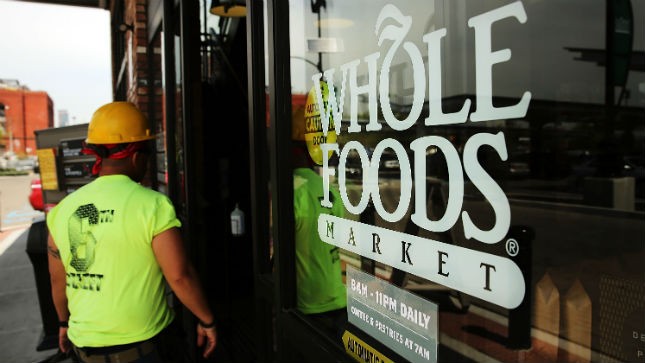-
Tips for becoming a good boxer - November 6, 2020
-
7 expert tips for making your hens night a memorable one - November 6, 2020
-
5 reasons to host your Christmas party on a cruise boat - November 6, 2020
-
What to do when you’re charged with a crime - November 6, 2020
-
Should you get one or multiple dogs? Here’s all you need to know - November 3, 2020
-
A Guide: How to Build Your Very Own Magic Mirror - February 14, 2019
-
Our Top Inspirational Baseball Stars - November 24, 2018
-
Five Tech Tools That Will Help You Turn Your Blog into a Business - November 24, 2018
-
How to Indulge on Vacation without Expanding Your Waist - November 9, 2018
-
5 Strategies for Businesses to Appeal to Today’s Increasingly Mobile-Crazed Customers - November 9, 2018
Whole Foods reaches $3.5M environmental waste settlement
In addition to correcting the violations and paying penalties, Whole Foods will also promote hazardous waste compliance in the retail industry as part of a supplemental environmental project, or SEP.
Advertisement
During a year-long investigation, the EPA found hazardous waste handling violations at Whole Foods facilities in Texas, Arkansas, Louisiana, Oklahoma and New Mexico, the agency said.
Tuesday, the U.S. Environmental Protection Agency (EPA) announced a settlement with Whole Foods Inc. over violations of hazardous waste regulations.
“Whole Foods Market takes environmental stewardship extremely seriously”, the company said in a written statement.
A copy of the settlement agreement said the EPA concluded that Whole Foods “failed to make a sufficient hazardous waste determination”. Whole Foods also improperly handled spent lamps, which are categorized as “universal” hazardous waste, a type of hazardous waste composed of items common to many types of facilities and industrial sectors.
Whole Foods, a company known incorporating environmental sustainability into its business strategy, said the products in question include nail polish remover, hand sanitizer, liquor and vitamins. The products become hazardous waste typically when opened and returned by a customer, no longer allowing them to return to store shelves.
Whole Foods says it will eventually extend its environmental waste plan to all of its US stores and facilities and, in partnership with the EPA, has committed to training and sharing these practices with businesses in Region 6 to support efforts to improve environmental compliance efforts across industries.
Advertisement
The investigation was originally launched by the EPA after problems were found by the New Mexico Environmental Department.




























